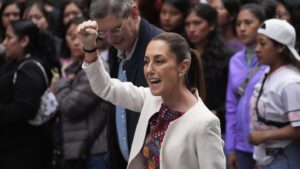Mistaken deportations have become a political hotbed, and the case of Kilmar Abrego Garcia is no exception. Recently returned to the United States from El Salvador, Garcia is now facing accusations tied to a significant human smuggling operation. His situation has captured public attention, highlighting the complexities of immigration enforcement under the Trump administration.
Garcia’s path back to the U.S. was paved after American authorities presented an arrest warrant to El Salvador’s President, Nayib Bukele. This warrant is linked to federal charges in Tennessee, where Garcia is accused of being a central figure in a smuggling operation that illicitly brought immigrants into the nation. If found guilty, he will be sent back to El Salvador after his legal proceedings in the U.S.
“This is what American justice looks like,” stated Attorney General Pam Bondi while announcing Garcia’s return and the unveiling of a grand jury indictment.
Garcia’s legal representation, however, has dismissed these allegations as unfounded. “There’s no way a jury is going to see the evidence and agree that this sheet metal worker is the leader of an international MS-13 smuggling conspiracy,” argued attorney Simon Sandoval-Moshenberg.
Federal Magistrate Judge Barbara Holmes has decreed that Garcia will remain in custody pending an arraignment and detention hearing scheduled for the following Friday. During his court appearance, Garcia confirmed his understanding of the charges using an interpreter.
Garcia’s deportation and subsequent return have sparked significant political debate. Democrats and immigrant rights advocates, including Sen. Chris Van Hollen, have called for his release and legal protection. A federal judge had previously ordered his return, which was later upheld by the Supreme Court.
The announcement of Garcia’s return for prosecution was met with disappointment by his legal team, particularly considering the immigration court’s earlier decision to protect him from deportation due to potential threats from local gangs in El Salvador.
Legal and Political Repercussions
The case has also led to a resignation within the U.S. attorney’s office in Nashville. According to a source, Ben Schrader, who headed the office’s criminal division, resigned around the time of the indictment, though he did not publicly comment on the reasons behind his decision.
Garcia’s lawyer, Sandoval-Moshenberg, criticized the administration’s tactics, labeling the charges against his client as “preposterous.” He urged for compassion towards Garcia’s family, who have endured significant hardship.
The indictment against Garcia, filed last month, outlines allegations dating back to 2016. These accusations include smuggling numerous individuals into the U.S., with claims of involvement with the MS-13 gang and other criminal activities. However, the indictment does not connect him to some of the more severe allegations mentioned in court documents.
In 2022, Garcia was stopped by the Tennessee Highway Patrol on suspicion of human trafficking, but he was not charged with any crime at that time. His wife defended his actions, explaining that transporting workers between job sites was part of his routine responsibilities.
Immigrant Rights and Government Policies
Garcia’s case has become a symbol of the ongoing struggle between immigrant rights groups and the Trump administration’s immigration policies. While advocates see him as a victim of erroneous deportation practices, the government portrays him as a criminal linked to gang activities.
Garcia, who has lived in the U.S. for about 14 years, was previously deported in 2019 following accusations of gang affiliation. Despite these claims, Garcia maintained his innocence, and a U.S. immigration judge had previously granted him protection from deportation due to the risk of gang-related violence in El Salvador.
Even with a potential conviction, further legal challenges are anticipated as any attempt to deport Garcia would require another immigration court hearing. His case continues to unfold amid broader discussions about immigration enforcement and policy implementation.






